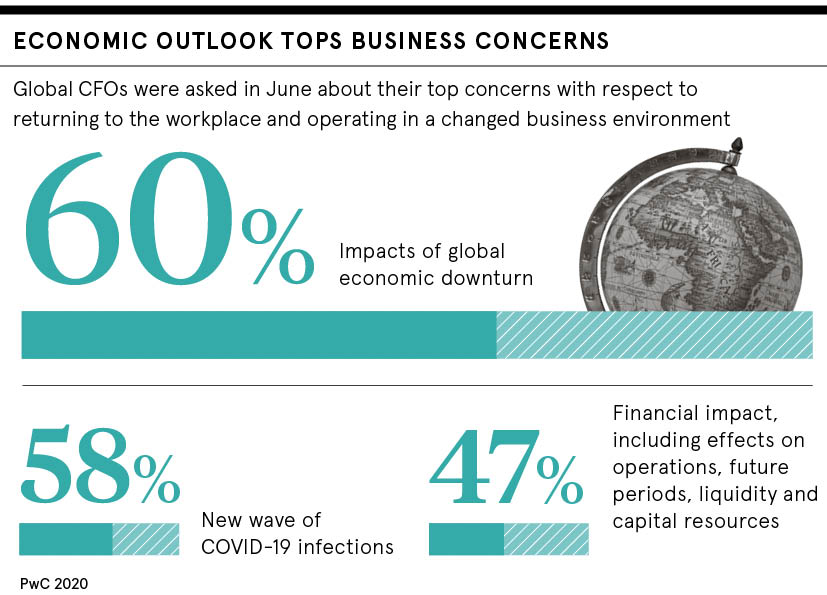In early July, as the UK economy emerged from lockdown, chancellor Rishi Sunak conceded that despite furlough payments, business support grants and eating-out vouchers, there are going to be difficult times ahead.
Many economists would call that a gross understatement. The Organisation for Economic Co-operation and Development predicts that the UK economy will shrink by more than any other developed nation. The Institute for Employment Studies finds that unemployment rose more in two months of lockdown than in the first year of the Great Depression.
These grim statistics are the tip of a large iceberg. Delve deeper and something entirely predictable emerges. Those parts of the economy hardest hit by previous economic downturns are likely to be hardest hit again.
“The pain will not be shared equally,” says Will Rossiter, associate professor of regional policy and development at Nottingham Business School. “We know very clearly from the experience of previous recessions that economic shocks of th/is kind tend to bear heaviest on areas that faced pre-existing disadvantage. This can certainly be said of many former industrial areas in the North and Midlands.”
Is it possible to “level up” the country
At the same time, Boris Johnson won a general election partly on a promise to “level up” the country. The phrase is vague, but hints at rebalancing the economy in a way that favours left-behind regions over the soaraway South East. The Conservatives won scores of traditionally Labour “red wall” seats in the North and Midlands in 2019. A London-centric recovery from a long and painful downturn could see these voters switch back in 2024.
So, the political motivation is there, but do the opportunities to “level up” exist? Some experts think the coronavirus pandemic has provided the best chance in decades of starting to rebalance a lopsided economy dominated by services and the City of London. Promoting manufacturing and engineering could reinvigorate the regional towns where many businesses in these sectors are based.
Economist and author Paul Ormerod, who chairs the Rochdale Development Agency, believes the pandemic has undermined complex supply chains and frayed international relationships, making domestic manufacture more appealing.
“The crisis has obviously led to geopolitical connections being reconsidered in a pretty fundamental way,” he says. “The concept of bringing manufacturing back [to the UK] is underpinned by this as well as by the fragility of links which emerged during the crisis.

More supply chain crises to come?
When China went into lockdown early in the pandemic, many businesses in the West struggled to source the equipment and components they needed. International supply chains crumbled in the crisis. With the pandemic far from over and the worst economic shocks of climate change and Brexit adjustments to come, crisis might be something business has to get used to.
And at the pandemic’s peak, domestic manufacturers stepped in to fill important gaps, seamlessly transitioning to produce personal protective equipment, ventilator parts and other equipment for the NHS. John Woodruffe, founding director of Lancashire-based business performance consultancy Cube Thinking, thinks this might come to be seen as a transformative moment.
“Coronavirus had a severe detrimental effect on the UK’s supply chain,” he says. “So is manufacturing coming back home? Some trends are starting to show it, starting with healthcare where supply chains have quickly diversified and domestic supply has become crucial. There are opportunities in other sectors, too, supporting the power generation, automotive and aerospace industries, for example.”
COVID-19 fallout has been mixed for manufacturing
They are not the only ones. Early in the crisis, some UK textile manufacturers reported bulging order books as clothing retailers quickly moved to secure supplies. A poll of engineers in May found that a majority (59 per cent) favoured onshoring supply chains, while only 2 per cent said existing supply chains were adequate.
So COVID-19 has delivered some quick wins for manufacturers in key sectors, even while it has decimated others. But can these piecemeal gains lead to a sustained manufacturing recovery?
“The COVID-19 pandemic has made this as realistic as it’s ever going to be,” says Luke Hamm, chief executive of research and development tax relief specialist GovGrant, who thinks demographic trends set in play by the pandemic also favour an economic rebalancing. “As COVID-19 drives people away from urban centres and crowded workplaces, it’s likely we’ll see less draw to the southern cluster and economic activity more evenly spread across the country.”
Could a “green” recovery promote balance?
Other trends may also favour UK regions, including Industry 4.0 advances that reduce the cost benefits of manufacturing in the developing world. In addition, the government’s apparent enthusiasm for a green recovery is crucial. The high-tech manufacture of green components, equipment and materials has long been touted as a way to reinvigorate the country’s industrial towns. The need for a sustainable COVID-19 recovery has added a sense of urgency.
“The sectors more likely to benefit are higher tech ones and there is a lot of potential here,” says Ormerod. “Rochdale, for example, already has a relative strength in manufacturing with good high-tech companies.” He believes the government should promote innovation in the sector by shifting research funds and facilities to former industrial regions.
Rossiter also thinks it probably true that COVID-19’s disruptive potential will provide opportunities for some businesses, though he expects large numbers of business failures. He agrees that any meaningful rebalancing will require sustained government action and in particular “a more thoroughgoing and consistent devolution of powers and resources to all the UK regions and nations”.
When the dust has settled on the COVID-19 lockdown, the UK’s traditional manufacturing heartlands are likely to have suffered most at its hands. But to some extent the nature of recovery is still up for grabs. It would take serious political will to start reversing deep-seated regional imbalances, but the pandemic has at least created an opportunity.
Is it possible to “level up” the country

